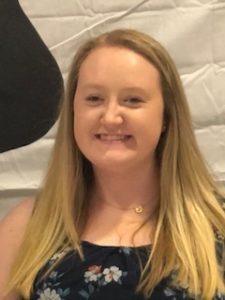
Check out Abby McCalmon’s article for the Annual American Dairy Science Association meeting held virtually last month. A native of Jackson, TN, she recently received her Bachelor’s degree in Animal Science and minor in Biology from the University of Tennessee. While an undergraduate, she was the Vice President of UT Dairy Club and the Treasurer of UT’s Equestrian Team.
Original Research Oral Competition focusing on milk production
By Abby McCalmon
Seven undergraduate students embraced the change from an in-person meeting to a virtual one to compete in the 2021 ADSA Original Research Oral Competition. Each presentation was unique with a common theme of milk production. Greg DeMers from The Pennsylvania State University presentation presented the impact of once-daily milking on production and udder firmness. His results suggested that once-daily milking reduced milk production and increased udder firmness in high-producing herds compared to twice-daily milking. Clayton McWilliams from the University of Guelph in Canada posed the question ‘Is greater milk production associated with cows who have a greater probability of ruminating while lying down?’ His results suggested that encouraging lying down while ruminating has benefits on dairy cow productivity. In addition to milk production, research was presented on enhancing post-weaning prepubertal mammary growth through applications of estrogen by Isabel Leonard from Virginia Tech. The successful research showed that the implants did in fact work. Sarah Johnson from the University of Georgia presented her project on evaluating the impact of bacterial load and IgG concentration in colostrum on passive transfer in dairy calves. This showed that there was no correlation between colostrum BRIX values and passive transfer rates. However, the mean %BRIX for colostrum was 26.3% and 22.1% for fresh and frozen. Maia Machiela from Michigan State University presented her research on the effect of feeding rumen-protected methionine and lysine (ML) with or without an animal-derived source of rumen-undegradable protein (MLO) on the performance of mid-lactation cows. It highlighted both ML and MLO increase the yields of milk fat protein. Other presenters included Rhiannon Hall from the University of Kentucky on how personality affects dairy heifer response to music genres. Heifers were described as “exploratory” and “fearful” depending on how close they would come to the music source or how much they would explore a new pen. Abby McCalmon from the University of Tennessee presented her research on the three regions of Tennessee and how dairy operations differ between them. Her research showed that East Tennessee held the most dairy operations with cattle numbers and total workers. An awards ceremony will be held Tuesday evening on July 13th where the placings will be given. Congratulations to this year’s future winners and all who participated! Abby McCalmon is a recent animal science graduate of the University of Tennessee where she will continue her education under the guidance of Dr. Elizabeth Eckelkamp to get her master’s in animal science with a concentration in dairy science.
